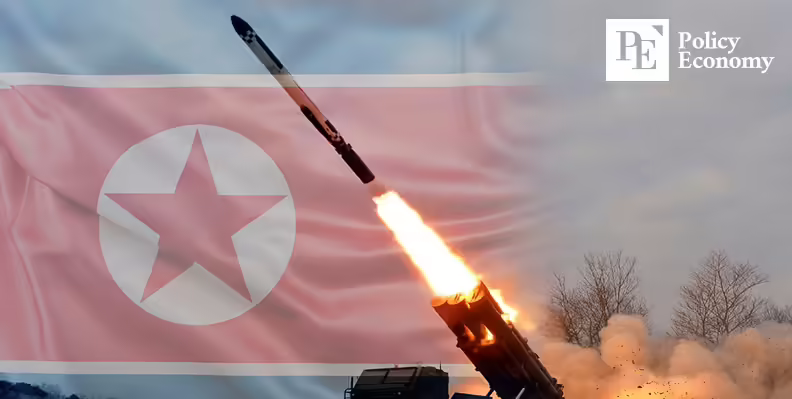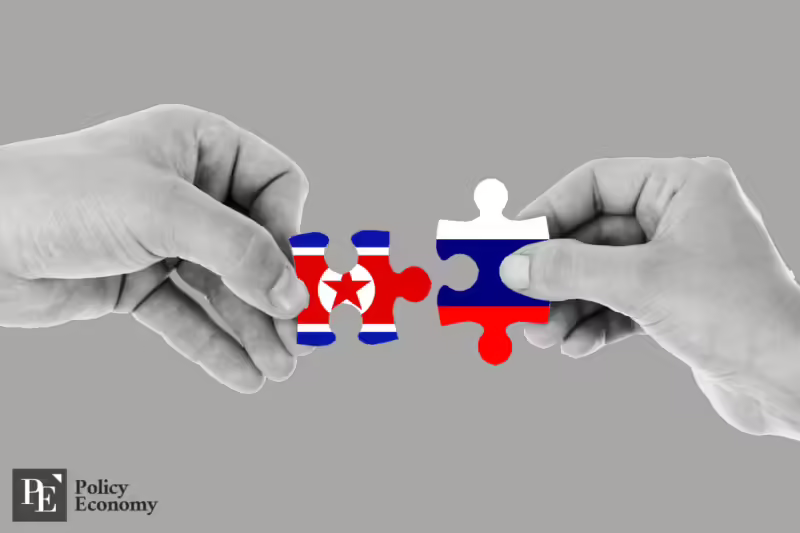Russia Adds Momentum to North Korea's Nuclear Program Amid Growing Suspicions of Indirect Missile and Technology Support
Input
Modified
Evidence Suggests Direct Russian Support for North Korea's Nuclear Development Possibility of Indirect Support for Weapons Manufacturing North Korea Accelerates Nuclear and Submarine Development

As concerns grow that the funds Russia provided in exchange for purchasing North Korean weapons may have been directly funneled into North Korea’s nuclear development, alarm is rising that North Korea–Russia relations have entered a new phase of strengthened military-technical cooperation. In particular, suspicions are mounting that Russia, constrained by a lack of cash reserves, may have indirectly transferred military technology to North Korea. This has drawn further attention to the rapid progress in Pyongyang’s nuclear missile and submarine development. Consequently, criticism is intensifying that the international sanctions regime against North Korea could be rendered ineffective.
Russia’s Direct Support for North Korea’s Nuclear Program Overturns Previous Assumptions
According to diplomatic sources on the 25th, the Multinational Sanctions Monitoring Team (MSMT) recently released a report stating that “Russia has been extensively violating international sanctions against North Korea since early this year.” Specific violations include:
- The maritime, air, and rail transport of North Korean weapons
- Joint military drills to support the war in Ukraine
- Exceeding the annual cap on petroleum product supplies to North Korea
- Maintaining correspondent banking relationships with North Korean financial institutions
The MSMT, launched in October last year, is the successor to the UN Security Council’s Panel of Experts on North Korea Sanctions. It currently includes 11 countries, among them South Korea, the United States, and Japan.
The Financial Action Task Force (FATF) also raised concerns in a recent report about Russia’s financial support for North Korea. Although North Korea has been cut off from the international financial messaging service SWIFT for years, severely restricting its cross-border financial activities, the report notes that Russian assistance has enabled Pyongyang to circumvent this blockade. MSMT emphasized, “Illicit financial activities by nations like North Korea rely on networks of professional money launderers, criminal organizations, smugglers, and cybercriminals — and Russia now plays a central role in this ecosystem.”
Experts believe that this deepening relationship stems from the “Comprehensive Strategic Partnership Treaty” signed by the two countries at the end of last year. Analysts explain that Russia, needing manpower and supplies to sustain its war in Ukraine, has turned to North Korea. At the same time, Pyongyang seeks technology, goods, and cash necessary to maintain its status as a nuclear-armed state.
This marks a stark reversal from previous expectations. As recently as March, the Asan Institute for Policy Studies published a report titled “Prospects for North Korea–Russia Relations and South Korea’s Response”, predicting that Russia would avoid supporting North Korea’s nuclear weapons development. The report argued that involvement in North Korea’s nuclear program could complicate Russia’s relations not only with the United States but also with China. At the time, U.S. President Donald Trump was leading discussions on “global nuclear disarmament,” with Russian President Vladimir Putin expressing support for the effort.
Undermining the UN Sanctions Framework
Amid mounting evidence that Russia is indeed supporting North Korea’s nuclear ambitions, there are growing suspicions that Moscow may be providing indirect assistance not in cash, but in technology. With the prolonged war in Ukraine severely depleting Russia’s cash reserves, the transfer of military technology or know-how has become a more realistic form of support for its allies.
This hypothesis draws on precedents from the early 2000s when North Korea collaborated with countries like Syria and Pakistan, receiving uranium enrichment technology and missile blueprints. These transfers were often carried out not through direct financial transactions, but via exchanges of personnel, equipment transfers, and joint experiments, methods designed to bypass sanctions.
Observers believe Russia is likely minimizing direct assistance in order to avoid international scrutiny. However, the fundamental problem is that this method effectively neutralizes the existing UN sanctions framework. While financial transactions can be traced, technology transfers are far more difficult to monitor and nearly impossible to verify without satellite imagery or human intelligence.
Russia has already undermined the sanctions regime by exercising its veto power as a permanent member of the UN Security Council, blocking resolutions related to North Korea. Experts warn that this behavior could also embolden other sanctioned countries, apart from North Korea, to seek ways to bypass international sanctions under the guise of precedent.

North Korea’s Defense Industry Becomes More Self-Reliant Amid Heavy External Dependence
Amid these developments, the noticeable acceleration in North Korea’s strategic weapons development strongly suggests that significant technology transfers from Russia have already taken place. North Korea has been conducting successive tests related to nuclear-powered submarines and hypersonic missiles, with their performance advancing rapidly. Kirill Budanov, Director of Ukraine’s Defense Intelligence, remarked, “The first KN-23 missiles North Korea sent to Russia had major problems — half veered off course or exploded midair. Now, they hit targets with precision, which is the result of North Korean and Russian experts working together.”
Some analysts suggest that North Korea may be pursuing the development of a Submarine-Launched Ballistic Missile (SLBM) system combined with a nuclear-powered submarine. The propulsion and control systems critical to nuclear-powered submarines require a far more sophisticated level of design compared to conventional cruise missiles. Consequently, the prevailing view is that such progress would have been virtually impossible without active and substantial support from Russia. This is being interpreted as a clear sign that North Korea–Russia cooperation has now expanded into submarine development.
The problem is that this influx of technology not only accelerates North Korea’s technological sophistication but also enhances its strategic autonomy. With self-reliance in key military technologies, North Korea is establishing the foundation to continue its nuclear weapons development regardless of external sanctions. This poses serious implications not only for the Korean Peninsula but for the broader security environment in Northeast Asia.
In particular, maritime launch systems like SLBMs, which are inherently difficult to detect, are highly likely to serve as effective deterrents. This has raised growing concerns that the longstanding “preemptive detection and preemptive strike” strategy pursued by South Korea and the United States may now be fundamentally undermined.





















